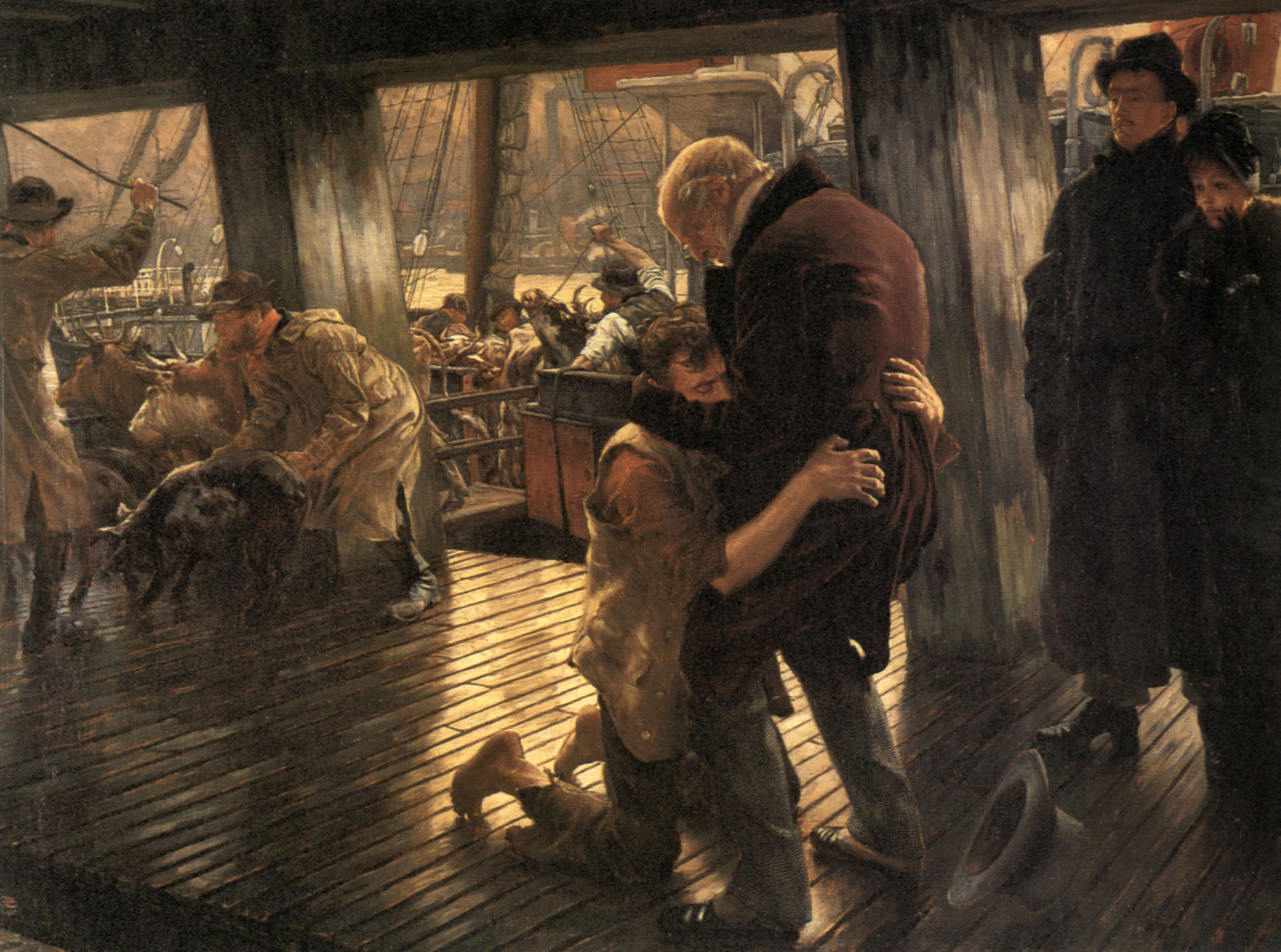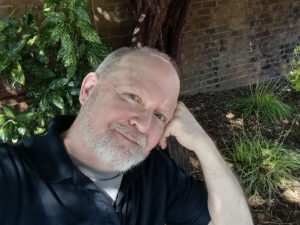“I don’t roll on nobody,” I said, abysmal grammar and all, but a jail cell is no place for linguistic niceties. My voice was rough, as much scared as aggressive. My bunkmate, or cellie, looked across our 7×10 room. He paused a moment. “No,” he nodded. “I don’t believe you do.”
We had been talking over how we got locked up. Danny admitted freely that he and his sister did pretty well stealing supplies from construction sites. The night before, Danny told me, he had been lifting some copper wire when the owner spotted him and chased Danny’s truck through downtown Denver all the way to Golden. Apparently a 911 call was made and soon he was in custody.
“I don’t know why he had to chase me down and call the cops,” he said. “I mean, a man’s got to make a living, right?” Danny was a multiple offender, having done time before, so he expected to go down all day—that is, serve his full sentence.
Suddenly he asked if I was a law officer. He had heard that I would have to admit it. “I don’t think that’s right, actually,” I laughed. “But they love for us to think so!”
I had been picked up for criminal impersonation. Suddenly I was telling my cellie everything, not out of moral propriety, but because I knew there was no getting around the facts. The movies have that part wrong. Claims of innocence do nothing for your street cred inside.
I had made a living out of presenting myself as something I was not. I started with small deceptions that grew into cons, or grifts, which then escalated to a point where I was being interviewed on national television and radio. I was even getting calls from screenwriters and film stars about a movie of my life—an autobiography that was pure fabrication and nonsense.
“You’re famous!” Danny chuckled when I finished. He passed me half an orange that he had filched from the food cart. He knew the inmate distributing the lunches and snagged us extras. “See, David? You got to make a living.” His eyes got deadly serious. “Now don’t roll on me, brother.” By that, he meant don’t tell; more to the point, don’t roll over and give information about him to anyone.
We had both been arrested that night. The others in processing were first timers like me. But I hit luck. I double-bunked with a frequent visitor. My cellie told me how things are inside, how to avoid trouble, and how to find a crew. “Don’t be a loner, don’t be a loud mouth, just go with the flow,” he said. Then he looked me up and down. “People think you’re a doctor, right?”
“Well, a PhD, yeah,” I shrugged.
“So you’re smart,” Danny said. “You learn law inside, help write letters to lawyers or whatever, and you’re protected.” Good advice, but that day Danny couldn’t stop staring out the window.
“I hope my sister comes through,” he muttered over and over. They had a standing agreement to bail each other out.
The next day, Danny and I swapped numbers: if I was released first, I would call his sister; if it was him, he was to phone my wife. They announced his name and Danny walked out. He rang my wife that afternoon.
I was alone in my cell. I bit into the orange he had left me. It tasted sweeter than any orange I’ve had before or since. I have an idea why.
For the first time in over ten years, I had been completely honest with another human being.
That night, restless and desperate, I turned to God. I was out of practice, to be sure. I had been baptized at fifteen, but in my thirties I went through a paradoxical there-is-no-God-and-I-hate-him phase. Now I faced the reality that I needed help. “It was inevitable, I suppose,” I whispered. “You knew this would happen, if you’re there, and here I am.” I tried bargaining. “If you help me out, Lord, I’ll tell the truth. To everyone.”
My wife posted bail via wire transfer. I caught a cab at the detention center. “I’m broke,” I said. “I got enough for the fare but no tip. Sorry, man.”
“My brother’s doing time,” the driver said. Then he smiled, surprisingly warm and calm. “Forget it. Lots of guys I pick up here have the same problem.”
A compassionate cabbie, I thought to myself. Who knew?
When I got home, my wife was sitting on the front porch. I thanked the cabbie and ran to her. The moment we walked inside, I knelt—next to our cat’s litter box, as it happened. She knelt with me. And I told her the truth.
The next day, I drove to see my teenage daughter, Jess.
And I confessed.
“I’d have said you’re innocent the whole time, whatever they had on you,” Jess said defiantly. Her eyes were steeped in hurt and betrayal.
“I know, sweetie,” I said. “That’s why I told you first thing.”
The next week at the arraignment, I spotted my cellie. “I saw you on TV, brother!” Danny laughed, shaking my hand. Then he lowered his voice. “Some reporters are outside waiting for your perp walk.”
“Did they ask you anything?”
“Sure, Doc.” He winked. “But I don’t roll on nobody.”
Confession is not an easy thing for our loved ones to live with. I didn’t necessarily feel better; and they definitely felt worse. Most of my family ignored me. The last time I spoke to my parents for several years was the day of my arrest.
I pleaded guilty at my trail. CNN captured every word. My last appearance on television was the most excruciating for my family. I was sentenced to five years: time served plus probation. I did three.
After my release, my aunt called. She was a woman of plain talk and deep beliefs. In her view, I had confessed my crime, did my time, and paid what was due. “That was then,” she said. “What are you doing now?”
My parents remained silent until seven years after my arrest. It took my mother’s funeral for my father to speak to me. Over time, he and I found a way to face our wounds and ended up friends at last. On one visit, he asked about my crime.
“It’s pretty simple,” I said, standing in his kitchen. “I thought I was Mister Clever Boots and they caught me—”
“Fine, if you don’t want to tell me, forget it,” he said and stomped away.
That was our only moment of acrimony in the last years of his life. For whatever reason, my father seemed to want to know and not want to know at the same time. I understood. I wanted to tell but was relieved not to.
I had held up my end of that jail-cell prayer. Still, I wasn’t sure if God had done much of anything. Perhaps it was just the normal progress of the legal system, I mused. Then, a few years later, my daughter spoke with me in another kitchen. This time her eyes held no recrimination as she said four of the gentlest words I will ever hear: “I forgive you, Dad.”
My confession doesn’t stop here.
Jess died of a heroin overdose in 2015. She was twenty-six. The night I learned she was gone I collapsed, buried my head in open hands, and groaned between tears, “Oh Lord help!”
For the first time in my life, I knew God heard me. I could feel his presence. As with many spiritual experiences, my sense of knowing was beyond words, but palpable nonetheless. I was not alone.
God heard me in my jail cell. When I doubt, I need only recall a cabbie’s compassion or my daughter’s forgiveness. God heard me when Jess died. Now I share one last confession: I feel Jess near as I type these words. I wanted to know that she continues on, that we will be together again. And I do.
Today I write and speak on loss and facilitate bereavement support groups. Each week I correspond with other mourners, or meet them in the most unexpected circumstances. In sorrow they, too, confess alarming guilt and pain. Some of their stories are personal, to be shared only among fellow sufferers. They needn’t worry.
I do not roll on anyone.
Image credit: James Jacques Joseph Tissot (1836-1902) The Prodigal Son in Modern Life: The Return





